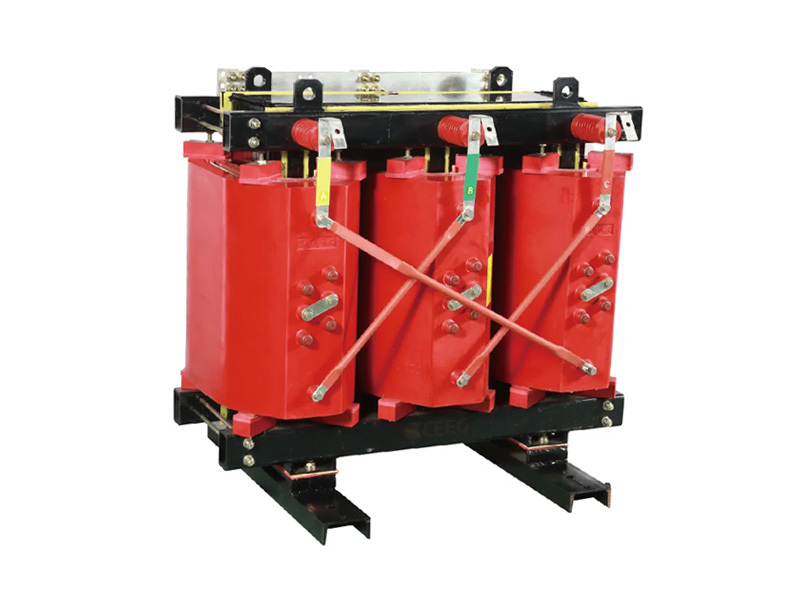He' Nan Chineng Electric Power Equipment Co., Ltd
Why Choose Cast Resin Transformers for Your Electrical Needs?
Apr 25,2025
Why Choose Cast Resin Transformers for Your Electrical Needs?
Table of Contents
- 1. Introduction
- 2. What Are Cast Resin Transformers?
- 3. Benefits of Cast Resin Transformers
- 4. Applications of Cast Resin Transformers
- 5. Comparison with Oil-Filled Transformers
- 6. Environmental Impact of Cast Resin Transformers
- 7. Maintenance and Lifespan
- 8. Cost Considerations
- 9. Conclusion
- 10. FAQs
1. Introduction
In the world of electrical engineering, choosing the right transformer is crucial for ensuring efficiency, safety, and longevity. **Cast resin transformers** (CRTs) have emerged as a popular choice for many applications. This article will explore the many reasons why you should consider cast resin transformers for your electrical needs, providing detailed information on their benefits, applications, and overall value in modern electrical systems.
2. What Are Cast Resin Transformers?
**Cast resin transformers** are a type of dry-type transformer that utilize resin to encapsulate the windings and core. This design protects the internal components from environmental factors and enhances their overall performance. Unlike traditional oil-filled transformers, which use oil for insulation and cooling, CRTs rely on a solid resin that offers several advantages in terms of safety, reliability, and maintenance.
2.1 Key Features of Cast Resin Transformers
Cast resin transformers are characterized by their unique construction, which includes:
- **Encapsulation:** The resin provides a robust barrier against moisture, dust, and other contaminants.
- **Self-Extinguishing Properties:** In the event of a fire, the resin does not propagate flames, making CRTs safer for use in populated areas.
- **Compact Design:** The absence of oil-filled components results in a smaller footprint, allowing for easier installation in limited spaces.
2.2 Types of Cast Resin Transformers
There are several types of cast resin transformers, including:
- **Single-Phase Transformers:** Ideal for residential and light commercial applications.
- **Three-Phase Transformers:** Suitable for industrial and larger commercial use, providing higher power capacity.
- **Isolation Transformers:** Designed to protect sensitive equipment from electrical disturbances.
3. Benefits of Cast Resin Transformers
The advantages of using cast resin transformers are numerous, making them a preferred choice for many electrical applications. Here are some of the most significant benefits:
3.1 Enhanced Safety
Safety is paramount in electrical installations. CRTs are non-flammable and do not present risks associated with oil leaks, making them ideal for high-risk environments such as hospitals, schools, and urban areas.
3.2 Durability and Longevity
Cast resin transformers are highly resistant to environmental stressors, including humidity, dust, and temperature fluctuations. This durability translates into a longer lifespan, often reaching 30 years or more with proper maintenance.
3.3 Reduced Maintenance Requirements
With CRTs, the absence of oil means there are fewer components that require ongoing monitoring and maintenance. This reduction in maintenance needs can lead to significant cost savings over time.
3.4 Environmental Friendliness
Cast resin transformers are more environmentally friendly than oil-based alternatives. They do not pose a risk of oil spills and are constructed from materials that are less harmful to the environment.
4. Applications of Cast Resin Transformers
Cast resin transformers find applications in a wide variety of settings. Some primary applications include:
4.1 Commercial Buildings
Crucial for power distribution in shopping malls, offices, and other commercial facilities, CRTs ensure reliable electricity supply while maintaining safety standards.
4.2 Industrial Use
In manufacturing plants and industrial locations, cast resin transformers provide the necessary power and reliability for heavy machinery and processes.
4.3 Renewable Energy Systems
As the world shifts towards renewable energy solutions, CRTs have become essential in wind and solar power installations, where reliability and environmental impact are critical.
4.4 Data Centers
Data centers rely on uninterruptible power supplies. CRTs offer the stability and safety needed to protect sensitive electronic equipment from power fluctuations.
5. Comparison with Oil-Filled Transformers
When considering transformers, it's essential to compare cast resin transformers with traditional oil-filled transformers to understand their unique advantages.
5.1 Safety Concerns
Oil-filled transformers pose risks of oil leaks and fire hazards, especially in densely populated areas. In contrast, CRTs mitigate these risks, making them a safer option.
5.2 Installation Flexibility
Due to their compact design, cast resin transformers can be installed in areas where oil-filled transformers cannot. This flexibility is advantageous in urban settings or where space is limited.
5.3 Maintenance Needs
Oil-filled transformers require regular maintenance to monitor oil levels and detect leaks, leading to higher operational costs. CRTs, being virtually maintenance-free, reduce these ongoing expenses.
6. Environmental Impact of Cast Resin Transformers
The environmental impact of electrical equipment is a growing concern in today’s world. Cast resin transformers offer several advantages in this regard:
6.1 Reduced Carbon Footprint
By opting for cast resin transformers, businesses can reduce their carbon footprint as these devices are designed with sustainability in mind.
6.2 Non-Toxic Materials
CRTs are constructed using materials that do not pose environmental hazards, making them a responsible choice for environmentally conscious organizations.
7. Maintenance and Lifespan
Understanding the maintenance and lifespan of cast resin transformers is crucial for long-term planning.
7.1 Lifespan of Cast Resin Transformers
With proper installation and minimal maintenance, CRTs can last upwards of 30 years, providing excellent value over their lifespan.
7.2 Maintenance Recommendations
While CRTs require less maintenance than oil-filled transformers, regular inspections for physical damage or signs of wear are still advisable to ensure optimal performance.
8. Cost Considerations
The initial investment for cast resin transformers may be higher than traditional transformers, but the long-term savings in maintenance and operational costs often outweigh these upfront expenses.
8.1 Total Cost of Ownership
When evaluating the cost, it’s essential to consider the total cost of ownership (TCO), which includes purchase price, installation, maintenance, and operational efficiency.
8.2 Budgeting for Cast Resin Transformers
Investing in cast resin transformers can lead to significant savings in the long run. When budgeting, factor in the lower maintenance costs and longer lifespan, which contribute to overall financial savings.
9. Conclusion
In summary, cast resin transformers offer numerous advantages that make them an ideal choice for a variety of electrical applications. Their safety, durability, reduced maintenance requirements, and environmental benefits position them as a leading option in the electrical industry. Whether you are working on a commercial building, an industrial facility, or integrating renewable energy systems, **cast resin transformers** provide a reliable and sustainable solution for your electrical needs.
10. FAQs
10.1 What is the primary advantage of cast resin transformers?
The primary advantage of cast resin transformers is their high level of safety and durability, making them ideal for various applications, including commercial and industrial settings.
10.2 How long do cast resin transformers typically last?
With proper maintenance, cast resin transformers can last over 30 years, providing excellent value for your investment.
10.3 Are cast resin transformers environmentally friendly?
Yes, cast resin transformers are more environmentally friendly than oil-filled transformers, as they do not pose risks of oil spills and are constructed from less harmful materials.
10.4 Do cast resin transformers require regular maintenance?
While they require less maintenance than traditional transformers, periodic inspections are recommended to ensure they are operating efficiently.
10.5 What applications are best suited for cast resin transformers?
Cast resin transformers are suitable for a range of applications, including commercial buildings, industrial use, renewable energy systems, and data centers.










